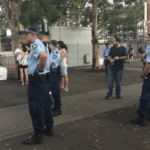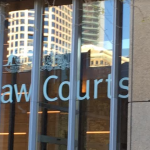The Offence of Unlawfully Possessing a Prescribed Restricted Substance in NSW

Whilst most people know that there are criminal laws against possessing recreational drugs like MDMA, heroin and cannabis in New South Wales, it is perhaps less commonly known that possessing some pharmaceutical medicines without a valid prescription can also amount to a criminal offence.
The following outlines the offences related to ‘prescribed restricted substances’, including the penalties and legal defences that may apply.
What is a prescribed restricted substance?
A prescribed restricted substance is a prescription-only therapeutic drug which has been criminalised by the Poisons and Therapeutic Goods Act 1966 (NSW)(‘the Act’).
Prescribed drugs are listed under Appendix D of the Poisons and Therapeutic Goods Regulation 2008 (NSW) (‘the Regulation’) and include:
- Anabolic and androgenic steroids;
- Most barbiturates and benzodiazepines;
- Stimulants like ephedrine;
- Human growth hormones; and
- Various other medicines which have potential for abuse.
The Appendix sets out the minimum quantities required for possession to become a criminal offence. This is known as the ‘prescribed quantity’.
For example, the prescribed quantity for anabolic and androgenic steroidal agents is 5 grams.
The offence of possessing a prescribed restricted substance in NSW
Section 16(1) of the Act contains the offence of possessing a prescribed restricted substance without valid authority.
The offence requires the prosecution to prove beyond a reasonable doubt that:
- You were in possession of a substance (possession meaning you had custody or control of the substance),
- You knew or believed it was likely the substance was in your possession, and
- The substance was a prescribed restricted substance.
The maximum penalty for the offence is:
- 2 years in prison and/or a fine of $2,200 if the offence relates to an anabolic or androgenic steroidal agent; or
- 6 months in prison and/or a fine of $2,200 for all other prescribed restricted substances.
Exceptions to the offence
Possession of a prescribed restricted substance will not be an offence if:
- a person has a valid prescription to possess the substance;
- a person is a medical practitioner, optometrist, midwife, nurse practitioner, podiatrist, pharmacist, dentist or veterinary practitioner, and the person obtains possession or attempts to obtain possession of it in the lawful practice of the person’s profession;
- a person is assisting or providing delivering to any of the above professionals;
- a person has otherwise been authorised by the Health Secretary to possess the substance;
Offences relating to attempted possession by fraud or misleading representation
Further offences apply if a prescribed restricted substance is obtained by fraud or misleading representations.
Section 16(2) of the Act outlines that an offence applies if a person forges or fraudulently alters or utters any prescription for the purposes of obtaining a prescribed restricted substance. This offence carries a maximum penalty of a fine of $2,200 or imprisonment for 6 months or both.
Section 16(3) of the Act outlines that an offence applies if a person who, by a representation that the person knows, or ought reasonably to know, is false or misleading:
- obtains, or attempts to obtain, from a medical practitioner, nurse practitioner, midwife practitioner, dentist, optometrist, podiatrist or veterinary practitioner a prescription that includes a prescribed restricted substance; or
- induces, or attempts to induce, a pharmacist to dispense a prescription that includes such a prescribe restrict substance, knowing the prescription to be forged or fraudulently altered; or
- induces, or attempts to induce, a pharmacist to dispense a prescription that includes such a prescribed restricted substance, knowing the prescription to have been obtained by fraud; or
- is in actual possession of a prescription that includes such a substance, knowing the prescription to be forged or fraudulently altered, or the result of a false or misleading representation.
This offence carries a maximum penalty of 6 months in prison and/or a fine of $2,200.
Challenging an allegation of possessing a prescribed restricted substance
There are several ways to challenge a charge of possessing a prescribed restricted substance, including:
- Putting the prosecution to proof; in other words, making them prove each element (ingredient) of the offence beyond a reasonable doubt. For example, the element of possession requires the prosecution to prove the the item was in your custody or control, and that you knew it was there or likely there, and that your possession was ‘exclusive’ (which can be difficult for them to prove if it was found in a common area of a home, the boot of a car or any other place that was accessed by others). The prosecution also needs to prove the quantity of the substance without packaging was at least the prescribed quantity.
- Establishing that one of the many statutory exceptions to the offence applied (as outlined above), and/or
- Establishing that a general legal defence applied, such as duress or necessity
Any evidence of the drug being found may also be excluded if there was some impropriety in how it was detected or conveyed thereafter. So, for example, the case may be stopped in its tracks if the substance was found during an illegal search or if the substance was not conveyed in the right manner thereafter.
Going to court over a drug offence?
If you are you going to court to contest a drug offence, call Sydney Criminal Lawyers anytime on 9261 8881 to arrange a free first conference during which one of our experienced defence lawyers will assess your case, advise you of your options and the best way forward, and fight for the optimal outcome.






